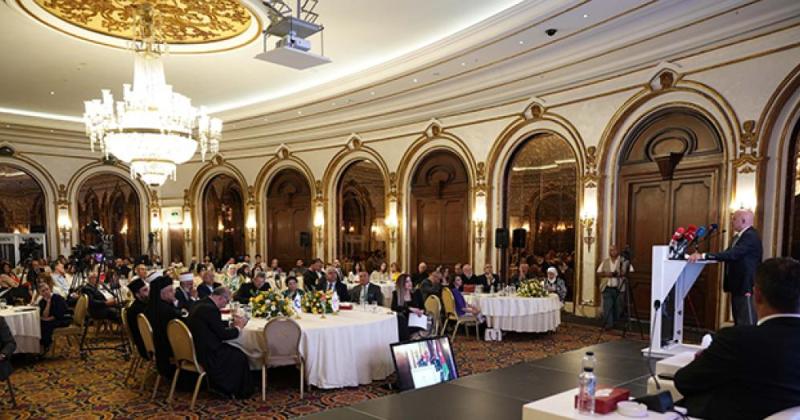On its 12th anniversary in Jordan, the Catholic Center for Studies and Media, in cooperation with SGP-Holland, has chosen an eye-catching title for its conference this year namely, "Artificial Intelligence for Peace and Human Dignity".
We had thought about it prior to the war in Gaza, yet after the aggression we postponed it. However, during these 10 bloody months of fierce war, there was a lot of talk about the uses of artificial intelligence in this war and the modern technologies that humans make to kill their brethren. Therefore, we wanted the title of this forum to be, "Artificial Intelligence: Its Ethics and Role in Making Peace and in Human Dignity".
This matter may seem missing from daily practice, and that one may oppose the daily artificial intelligence which seems to be ferocious towards humans. Yet, we do not want these modern tools to be in the hands of evil, in the hands of violence, in the hands of killing, and in the hands of abusing humans and their dignity.
What motivated us to do so was the distinguished presence of His Holiness Pope Francis this year at the G-7 summit, where it was the first time that a Pontiff participates in a session of politicians. His Majesty King Abdullah II also participated in the session, whose warm meeting with His Holiness the Pope accentuates the depth of Jordanian-Holy See relations, especially at a time when we mark this year their 30th anniversary of the establishment of official diplomatic relations, despite the fact that the good relations prevailed a long time before that.
When Pope Francis addressed the leaders, he spoke about this topic "Artificial Intelligence and its Role in making Peace and Harmony among People.” He said that true intelligence is that which should serve people. From this premise, we emphasize that countries have taken the initiative to legitimize ethics for artificial intelligence, the most renowned of which is the Rome Declaration in February 2020, which approved six principles for an ethical approach to artificial intelligence, namely transparency, inclusion, responsibility, impartiality, reliability, security and privacy.
The speakers--among whom were Dutch Prof. Dr. Marc De Vries and US Dr. Paul Hike, from Georgetown University who masters the Arabic language and teaches courses on Islamic-Christian studies at the University of Jordan, in addition to speakers from Jordan who provided enriching views on Artificial Intelligence--focused on the prospects of Artificial Intelligence as well as the need to manipulate it to serve human health and build a new humanitarian culture.
The recommendations issued called prominently for the necessity to formulate a Jordanian ethical charter for Artificial Intelligence, a matter which the Ministry of Digital Economy and Entrepreneurship has initiated--that is very similar to the Rome Declaration. We call for paying attention to it and to disseminate it on a wide scale, with the participation of media and technical centers concerned with this important humanitarian matter, that is related to the future of humanity and the dignity of individuals.
The presence of Minister of Government Communications Dr. Muhannad Al-Mubaidin had a positive impact on the participants, in the presence of Muslim and Christian clerics, professors, and students from various universities, as the future belongs to them, bearing in mind that they are the ones who will shape the future with their minds and natural intelligence, before it becomes artificial intelligence.
There was also a special impression made by the intervention presented by Mr. Majdi Khalil Bader, an expatriate in America and a knight of the Holy Sepulcher, who came with his family and children to visit Jordan for the first time, where they found authenticity of love, kindness, and beauty which made them consider returning next year.
Summing up the conference: Artificial intelligence is welcome! No one can stand in the way of progress, but not to have artificial intelligence and its ramifications dedicated to serve malicious and deadly political goals or to attain economic profits, but rather to serve the purpose of protecting human dignity. Technologies develop and sometimes dissipate, but the noble human presence remains as the basis for any technological development. We never accept to repeat the common saying: "We have developed technologically, but we have regressed morally." But at the conference, we wanted to say: “We have developed technologically, and we have advanced morally."
